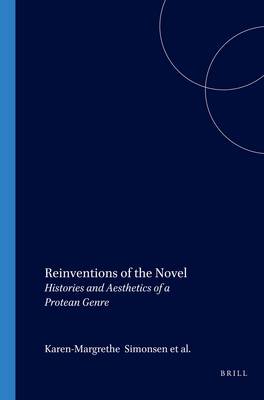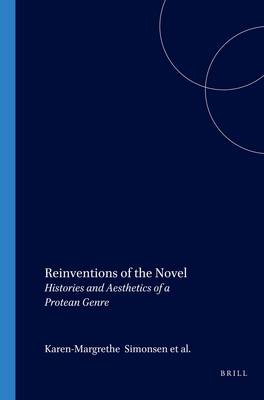
- Afhalen na 1 uur in een winkel met voorraad
- Gratis thuislevering in België vanaf € 30
- Ruim aanbod met 7 miljoen producten
- Afhalen na 1 uur in een winkel met voorraad
- Gratis thuislevering in België vanaf € 30
- Ruim aanbod met 7 miljoen producten
Zoeken
Reinventions of the Novel
€ 129,95
+ 259 punten
Omschrijving
The history of the Novel is a story of perpetual change, so that its identity still remains open to question. The sixteen articles in Reinventions of the Novel investigate connections, differences and similarities in the Novel around the world for the past three hundred years. Rather than searching for the essence of the genre, they look for the formal and thematic patterns on which the novel thrives, considering such matters as tradition and modernity, realism, rhetoric and identity, tableau and spatiality, and wondering whether epic and avant-garde are not quite contradictory terms. Close readings combined with historical overviews and theoretical discussions open up new constellations in the history of the novel. Untraditional cross-readings are made between Rabelais and Jens Peter Jacobsen and between Balzac and Nicholson Baker. Transformations of traditional modes of epic, biography and Bildung are traced as far as Georges Perec and Günter Grass, while canonical classics like Proust, Joyce, Richardson and Goethe are read in prosaic, pragmatic and media specific contexts. In the 1920s many people predicted the death of the novel; now more than ever it seems to be the dominant literary form - perhaps because it is the same, yet always different.
Specificaties
Betrokkenen
- Uitgeverij:
Inhoud
- Aantal bladzijden:
- 348
- Taal:
- Engels
- Reeks:
- Reeksnummer:
- nr. 40
Eigenschappen
- Productcode (EAN):
- 9789042008434
- Verschijningsdatum:
- 1/01/2004
- Uitvoering:
- Paperback
- Formaat:
- Trade paperback (VS)
- Afmetingen:
- 150 mm x 220 mm
- Gewicht:
- 598 g

Alleen bij Standaard Boekhandel
+ 259 punten op je klantenkaart van Standaard Boekhandel
Beoordelingen
We publiceren alleen reviews die voldoen aan de voorwaarden voor reviews. Bekijk onze voorwaarden voor reviews.







